Among light sports bikes below 500mL, the most competitive ones include KTM RC390, Yamaha YZF-R3, Kawasaki Ninja 400, Honda CBR400R, etc. Over the years, these competitors have been fighting openly and secretly, always trying to come out on top. Unfortunately, one foot is higher than the other. This year you have improved the performance, and tomorrow he has upgraded his equipment. They are fighting each other and it is inextricable. Kawasaki's power broke the deadlock that had been locked in for many years - the 399mL parallel four-cylinder sports bike, with a maximum power of 59kW, left those entangled parallel two-cylinder opponents far behind!
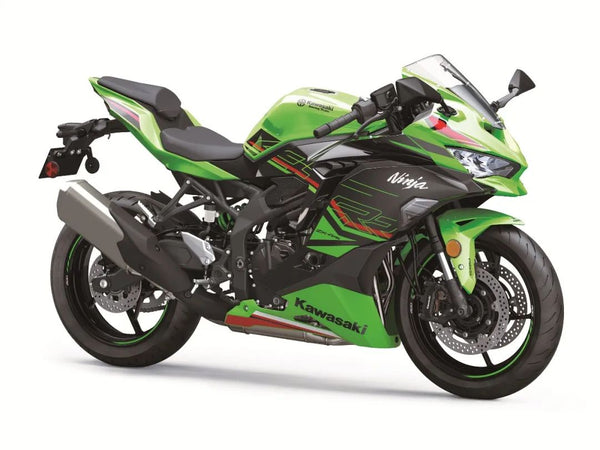
Previously, Kawasaki’s leading light sports bike under 500mL was undoubtedly the Ninja 400. Although the Ninja 400 was included in the "Ninja" family by Kawasaki, it was not numbered with ZX. Obviously, this "Ninja" is not the other "Ninja". It is not a light sports bike in the true sense, but a street bike that is more inclined to road riding. bike. Last year, Kawasaki launched a new light sports bike with the same cylinder displacement, but with the true sports pedigree of the "Ninja" family ZX. This is the Ninja ZX-4RR!
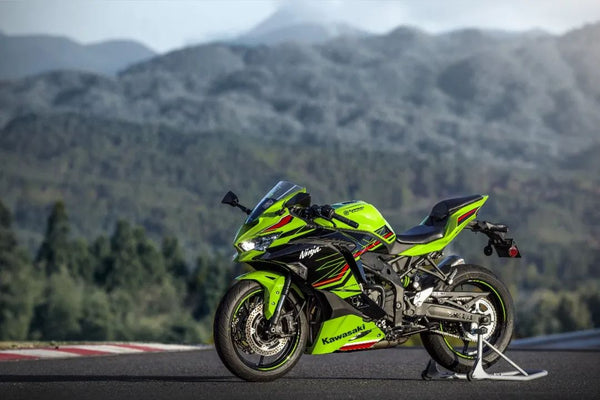
In terms of cylinder displacement, the Ninja ZX-4RR is exactly the same as the Ninja 400, both equipped with a 399mL engine. But this is just a cover, you must not be deceived, because this is a power heart with completely different technology and completely different personality! In terms of cylinder structure, the Ninja 400 is equipped with a water-cooled, DOHC 8-valve parallel twin-cylinder engine, while the Ninja ZX-4RR is equipped with an arrogant water-cooled, DOHC 16-valve parallel four-cylinder engine!
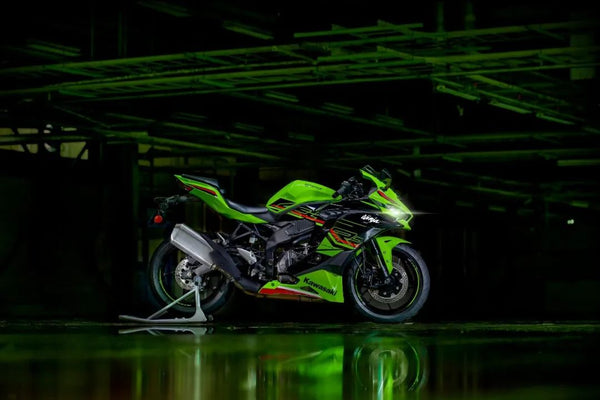
In order to further enhance the motion characteristics, this power heart uses a lightweight aluminum alloy piston, which reduces the reciprocating inertial mass and improves the speed response performance; the piston skirt is surface treated with molybdenum alloy special material to improve durability; the piston The shape of the top is optimized to help achieve a higher compression ratio and promote the full release of energy from the oil-air mixture. At the same time, a lightweight flywheel and carburized connecting rod are used to further reduce weight and make the operation faster. In order to ensure that the high-performance output does not decay over a long period of time, Kawasaki engineers worked hard to optimize the cooling system of this parallel four-cylinder. The cylinder panel adopts an open structure, which has higher cooling efficiency; the cylinder block is made of aluminum alloy die-casting, which is effective Withstands the pounding of high power output.
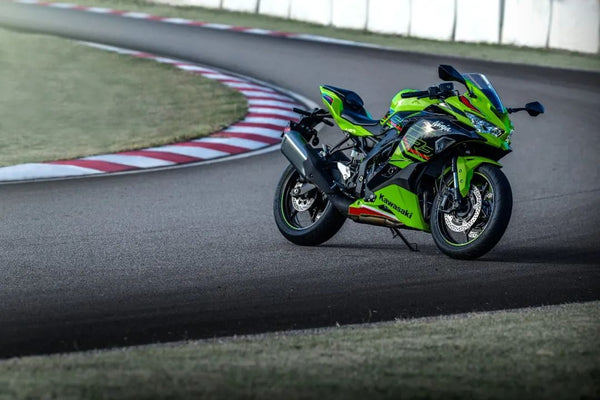
"Breathing" is crucial for high-performance engines. The ZX-4RR is equipped with an exhaust valve with a diameter of 19mm, and the intake valve adopts a larger diameter of 22.1mm, and is equipped with a three-rate valve spring to ensure sufficient air intake. Capable of high speed tasks. The valve angle is designed to be very narrow, which improves combustion efficiency and achieves a compact engine structure. As the latest generation member of the Ninja family, the ZX-4RR is of course indispensable with Kawasaki’s iconic forced air induction system to squeeze more engine performance. The structure of the forced air induction system of the ZX-4RR is similar to that of the Ninja H2. An air inlet is designed in the center of the front shroud. One end of the air duct is connected to the air inlet. After passing through the left fork position of the front fork, the other end is connected to the air. room. When the forced air induction system is activated, the air pressure in the air chamber is higher than the atmospheric pressure, and high-pressure cold air is quickly poured into the engine through the downdraft intake ducts with different lengths of 40mm and 60mm, effectively improving the engine's high-speed performance output!
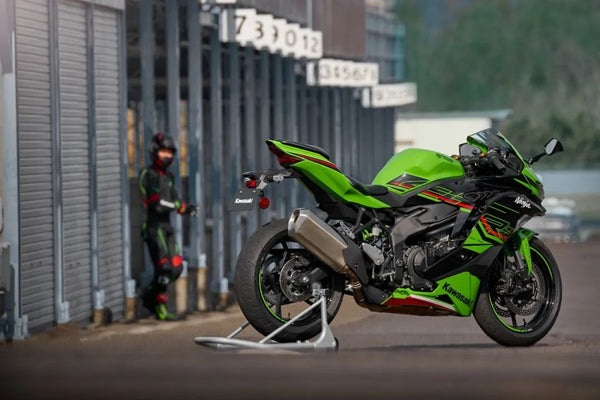
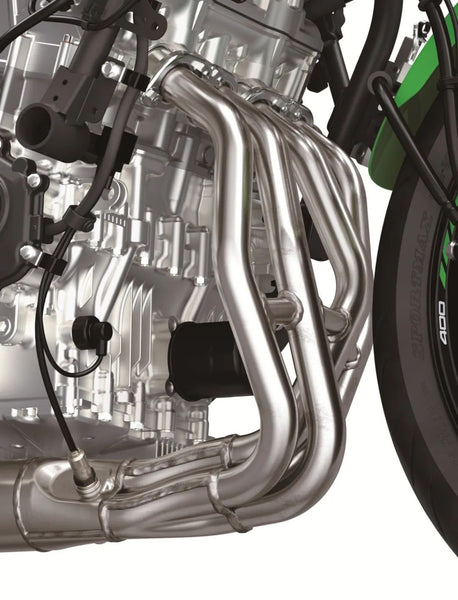
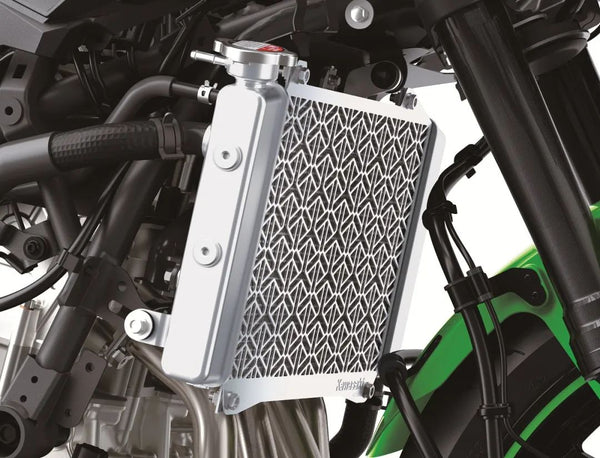
Embracing this performance-fueled heart is a high-tensile steel tube lattice frame. This frame is composed of steel tubes of different diameters and thicknesses. Advanced technology was used to conduct precise dynamic rigidity analysis to obtain an ideal balance of strength and elasticity. Kawasaki transplanted the advanced technology of the Superbike Championship star tank Ninja ZX-10RR to the ZX-4RR, carefully considering the center of gravity position, swing arm pivot position, engine axis position, as well as the frame trailing distance, caster angle, wheelbase, etc. parameters to create sharp control performance for the rider. In order to further enhance the control experience, Kawasaki engineers designed an extended swingarm made of high-strength steel to optimize front-to-rear mass distribution; the right swingarm adopts an arch design to position the exhaust pipe as centrally as possible.
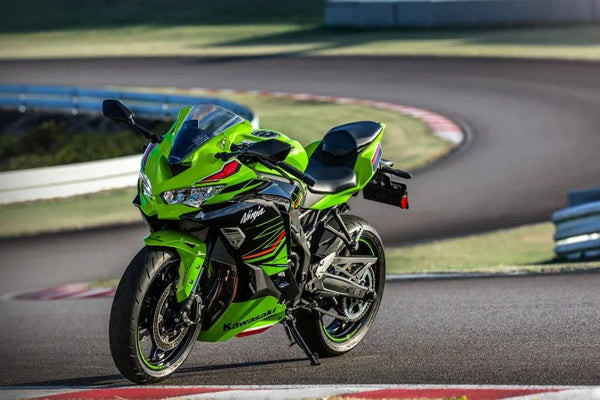
The suspension is also dedicated to sporty driving. The front end of the ZX-4RR is equipped with a Showa 37mm inverted front fork with built-in SFF-BP technology. This is the first time that SFF-BP technology has been applied to 400mL motorcycles. With this feature, when the rider brakes hard before entering a corner, the excellent performance of the front fork allows the mass of the ZX-4RR to be smoothly transferred to the front end, making the body smoother and the frame more stable, achieving better control. The rear of ZX-4RR is a horizontally mounted BFRC shock absorber, which can create a stable and solid feeling in various situations, create a comfortable experience during daily riding, and provide stable performance during sports racing, making the rider full of energy. confidence.
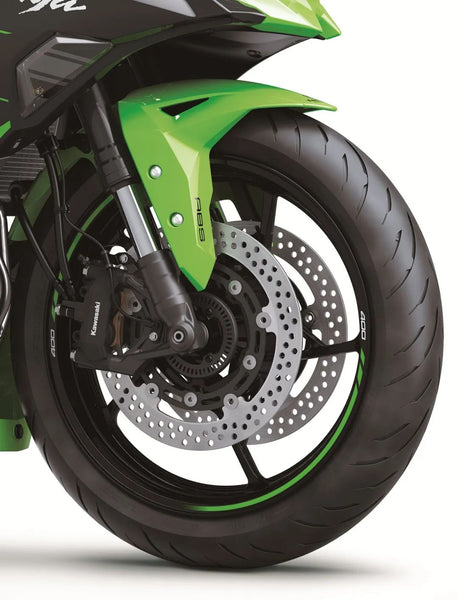
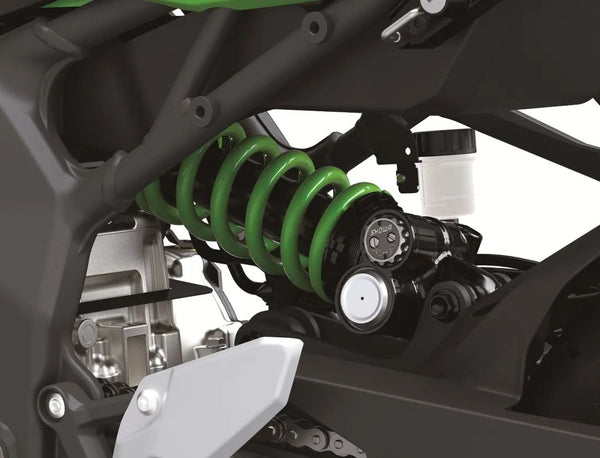
As a new member of the "Ninja" family, ZX-4RR is equipped with sophisticated electronic intelligent auxiliary devices, such as a two-way quick shift system, a 2-level power output mode, a 3-level traction control system, 4 driving modes, etc., to help riders be safer and more efficient. Get precise and deeper control of this racing machine!


410 comments
lZWcDXjg
BQYnxdOaCqvsZm
vYQweBzhJDlGo
UiBpEYvQL
dfwHBNpECuRVbA